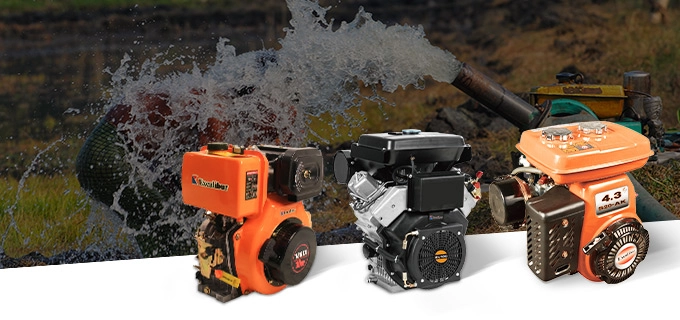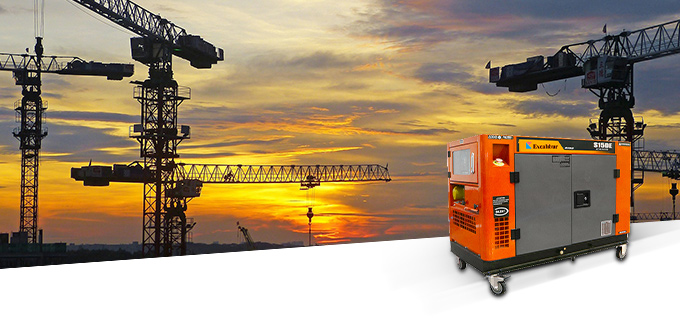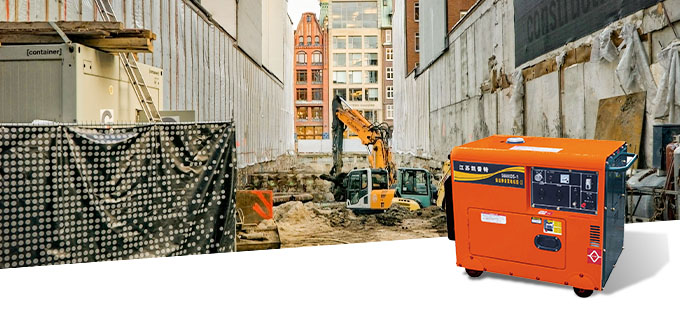Choosing between a diesel engine, a gasoline engine, and a kerosene engine involves considering various factors such as efficiency, cost, environmental impact, and specific application requirements. Depending on the expected use and user preference, each engine type has its own advantages and disadvantages. This article highlights the differences between diesel engines, gasoline engines, and kerosene engines to help you make the right decision.
Diesel Engines
Advantages
Fuel Efficiency
Diesel engines are known for their superior fuel efficiency compared to gasoline engines. They extract more energy from each unit of fuel, making them a cost-effective choice for long-haul and medium-duty applications.
- Torque: Diesel engines provide greater torque at lower speeds and provide better performance in high-torque applications such as trucks and heavy-duty vehicles.
- Durability: Diesel engines operate at higher pressures than gasoline engines and have a longer service life. This makes midsize vehicles cheaper.
- Fuel Availability: Diesel fuel has a wide range of uses and can be conveniently used by users in different regions.
Disadvantages
- Initial Cost: Diesel engines generally have a higher upfront cost compared to gasoline engines, which can be a limiting factor for some users.
- Noise and Vibration: Diesel engines generally generate more noise and vibration than gasoline engines. However, technological advances have made diesel engines quieter.
- Emissions: Diesel engines are more fuel efficient, but they generally produce more nitrogen oxides (NOx) and particulate matter, causing air pollution.
Gasoline Engines
Advantages
- Lower Initial Cost: Gasoline engines are usually less expensive to manufacture and purchase than diesel engines, making them more accessible to a wider range of users.
Quieter Operation
- Gasoline engines are generally quieter and produce less vibration than diesel engines, providing a quieter and more comfortable driving experience.
- Emissions: Gasoline engines produce less nitrogen oxides and fine dust than diesel engines, making them a choice for cleaner air quality.
Performance in Lighter Vehicles: Gasoline engines are well-suited for lighter vehicles and applications where high torque at low RPMs is not a primary requirement.
Disadvantages
- Fuel Efficiency: The fuel economy of gasoline engines is generally lower than that of diesel engines and can result in higher fuel efficiency over time.
- Torque at Low RPMs: Compared to diesel engines, gasoline engines generally have lower torque at low speeds, which affects their performance when used to carry heavy loads.
Kerosene Engines
Kerosene engines share some characteristics with both diesel and gasoline engines. Kerosene, a refined form of crude oil, serves as the fuel for these engines. Let’s explore the advantages and disadvantages:
Advantages
- Versatility: Kerosene engines can be adapted for a variety of applications, providing a middle ground between the characteristics of diesel and gasoline engines.
- Cost: Kerosene is often less expensive than gasoline, making it a cost-effective fuel option.
Disadvantages
- Fuel Efficiency: While kerosene engines can offer decent fuel efficiency, they may not match the efficiency of diesel engines in heavy-duty applications.
- Emissions: Like diesel engines, petroleum engines produce more emissions than gasoline engines.
| Features
|
Diesel engines
|
Petrol Engine
|
kerosene engine |
| Fuel type
|
diesel fuel
|
gasoline
|
kerosene |
| Ignition mode
|
compression ignition
|
spark ignition
|
compression ignition |
| ignition device
|
high-pressure ignition system
|
Ignition coils and spark plugs
|
high-pressure ignition system |
| burning process
|
compression combustion
|
Ignite and burn
|
compression combustion |
| fuel efficiency
|
higher
|
lower
|
medium
|
| Torque output
|
higher
|
lower
|
medium |
| Purpose
|
Heavy vehicles, industrial applications
|
Motorcycles, Small vehicles | Static generators, special industrial applications
|
| air-fuel ratio
|
higher
|
lower
|
medium |
| emissions
|
More nitrogen oxides (NOx)
|
More hydrocarbons (HC) and carbon monoxide (CO)
|
Less tailpipe emissions
|
| Maintenance cost
|
Generally lower
|
Generally lower
|
Generally lower |
Making the Choice
When deciding between diesel, gasoline, and kerosene engines, consider the following factors:
- Intended Use: Determine the primary purpose of the engine – whether it’s for heavy-duty transportation, light-duty vehicles, or versatile applications.
- Cost: Assess the initial cost, fuel cost, and overall operating expenses associated with each type of engine.
- Environmental Impact: Consider the emissions produced by each type of engine and choose one that aligns with your environmental preferences.
- Availability of Fuel: Make sure the fuel you choose is available locally to avoid logistical issues.
- Noise and Comfort: Evaluate the noise and vibration levels associated with each type of engine, especially if the application involves passenger vehicles.
Jiangsu Excalibur Power Machinery Co., Ltd. was established in November 2014 and is a professional manufacturer of engines and generators. The choice of diesel, gasoline, and kerosene engines depends on careful consideration of the above factors. You need to weigh and choose the right engine according to your own needs and preferences. If you have more needs about the engine, such as engine price, etc., please contact us, this is our email address: sales@sinbestpower.comm




